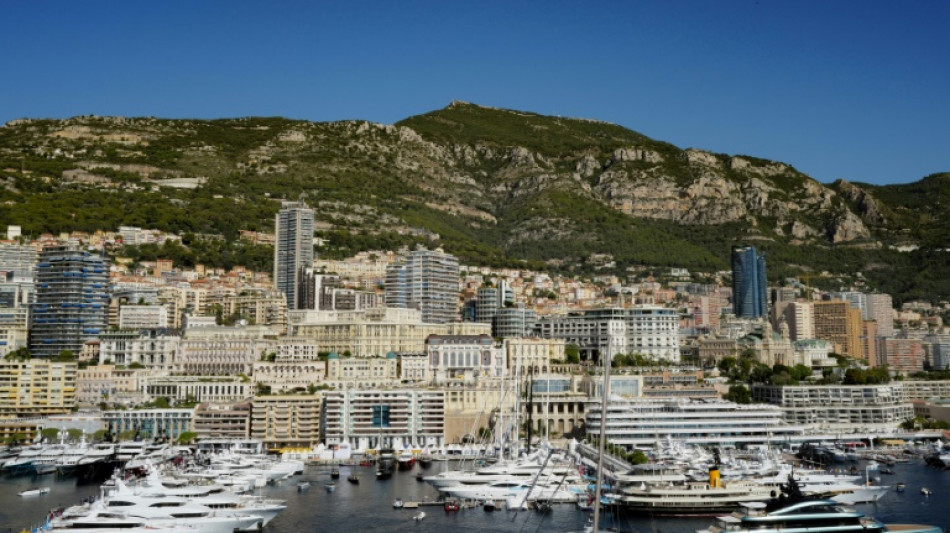
-
 Barcelona rout Copenhagen to reach Champions League last 16
Barcelona rout Copenhagen to reach Champions League last 16
-
Liverpool, Man City and Barcelona ease into Champions League last 16

-
 Tesla profits tumble on lower EV sales, AI spending surge
Tesla profits tumble on lower EV sales, AI spending surge
-
Real Madrid face Champions League play-off after Benfica loss

-
 LA mayor urges US to reassure visiting World Cup fans
LA mayor urges US to reassure visiting World Cup fans
-
Madrid condemned to Champions League play-off after Benfica loss

-
 Meta shares jump on strong earnings report
Meta shares jump on strong earnings report
-
Haaland ends barren run as Man City reach Champions League last 16

-
 PSG and Newcastle drop into Champions League play-offs after stalemate
PSG and Newcastle drop into Champions League play-offs after stalemate
-
Salah ends drought as Liverpool hit Qarabag for six to reach Champions League last 16

-
 Barca rout Copenhagen to reach Champions League last 16
Barca rout Copenhagen to reach Champions League last 16
-
Arsenal complete Champions League clean sweep for top spot

-
 Kolo Muani and Solanke send Spurs into Champions League last 16
Kolo Muani and Solanke send Spurs into Champions League last 16
-
Bayern inflict Kane-ful Champions League defeat on PSV

-
 Pedro double fires Chelsea into Champions League last 16, dumps out Napoli
Pedro double fires Chelsea into Champions League last 16, dumps out Napoli
-
US stocks move sideways, shruggging off low-key Fed meeting

-
 US capital Washington under fire after massive sewage leak
US capital Washington under fire after massive sewage leak
-
Anti-immigration protesters force climbdown in Sundance documentary

-
 US ambassador says no ICE patrols at Winter Olympics
US ambassador says no ICE patrols at Winter Olympics
-
Norway's Kristoffersen wins Schladming slalom

-
 Springsteen releases fiery ode to Minneapolis shooting victims
Springsteen releases fiery ode to Minneapolis shooting victims
-
Brady latest to blast Belichick Hall of Fame snub

-
 Trump battles Minneapolis shooting fallout as agents put on leave
Trump battles Minneapolis shooting fallout as agents put on leave
-
SpaceX eyes IPO timed to planet alignment and Musk birthday: report

-
 White House, Slovakia deny report on Trump's mental state
White House, Slovakia deny report on Trump's mental state
-
Iran vows to resist any US attack, insists ready for nuclear deal

-
 Colombia leader offers talks to end trade war with Ecuador
Colombia leader offers talks to end trade war with Ecuador
-
Former Masters champ Reed returning to PGA Tour from LIV

-
 US Fed holds interest rates steady, defying Trump pressure
US Fed holds interest rates steady, defying Trump pressure
-
Norway's McGrath tops first leg of Schladming slalom

-
 Iraq PM candidate Maliki denounces Trump's 'blatant' interference
Iraq PM candidate Maliki denounces Trump's 'blatant' interference
-
Neil Young gifts music to Greenland residents for stress relief

-
 Rubio upbeat on Venezuela cooperation but wields stick
Rubio upbeat on Venezuela cooperation but wields stick
-
'No. 1 fan': Rapper Minaj backs Trump

-
 Fear in Sicilian town as vast landslide risks widening
Fear in Sicilian town as vast landslide risks widening
-
'Forced disappearance' probe opened against Colombian cycling star Herrera

-
 Seifert, Santner give New Zealand consolation T20 win over India
Seifert, Santner give New Zealand consolation T20 win over India
-
King Charles III warns world 'going backwards' in climate fight

-
 Minneapolis activists track Trump's immigration enforcers
Minneapolis activists track Trump's immigration enforcers
-
Court orders Dutch to protect Caribbean island from climate change

-
 Sterling agrees Chelsea exit after troubled spell
Sterling agrees Chelsea exit after troubled spell
-
Rules-based trade with US is 'over': Canada central bank head
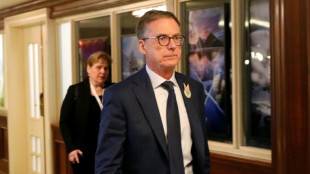
-
 Lucas Paqueta signs for Flamengo in record South American deal
Lucas Paqueta signs for Flamengo in record South American deal
-
Holocaust survivor urges German MPs to tackle resurgent antisemitism
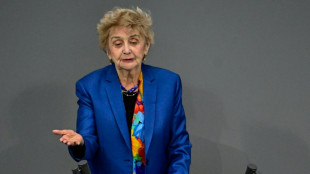
-
 'Extraordinary' trove of ancient species found in China quarry
'Extraordinary' trove of ancient species found in China quarry
-
Villa's Tielemans ruled out for up to 10 weeks

-
 Google unveils AI tool probing mysteries of human genome
Google unveils AI tool probing mysteries of human genome
-
UK proposes to let websites refuse Google AI search

-
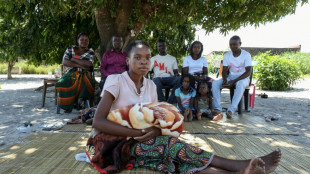 'I wanted to die': survivors recount Mozambique flood terror
'I wanted to die': survivors recount Mozambique flood terror
-
Trump issues fierce warning to Minneapolis mayor over immigration
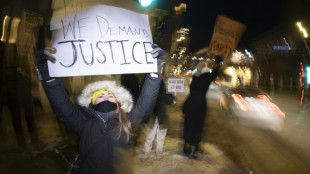

World's richest 10% caused two thirds of global warming: study
The world's wealthiest 10 percent of individuals are responsible for two thirds of global warming since 1990, researchers said Tuesday.
How the rich consume and invest has substantially increased the risk of deadly heatwaves and drought, they reported in the first study to quantify the impact of concentrated private wealth on extreme climate events.
"We link the carbon footprints of the wealthiest individuals directly to real-world climate impacts," lead author Sarah Schoengart, a scientist at ETH Zurich, told AFP.
"It's a shift from carbon accounting toward climate accountability."
Compared to the global average, for example, the richest one percent contributed 26 times more to once-a-century heatwaves, and 17 times more to droughts in the Amazon, according to the findings, published in Nature Climate Change.
Emissions from the wealthiest 10 percent in China and the United States -- which together account for nearly half of global carbon pollution -- each led to a two-to-threefold rise in heat extremes.
Burning fossil fuels and deforestation have heated Earth's average surface by 1.3 degrees Celsius, mostly during the last 30 years.
Schoengart and colleagues combined economic data and climate simulations to trace emissions from different global income groups and assess their impact on specific types of climate-enhance extreme weather.
The researchers also emphasised the role of emissions embedded in financial investment rather than just lifestyle and personal consumption.
"Climate action that doesn't address the outsized responsibilities of the wealthiest members of society risk missing one of the most powerful levers we have to reduce future harm," said senior author Carl-Friedrich Schleussner, head of the Integrated Climate Impacts Research Group at the International Institute for Applied Systems Analysis near Vienna.
- Billionaires tax -
Owners of capital, he noted, could be held accountable for climate impacts through progressive taxes on wealth and carbon-intensive investments.
Earlier research has shown that taxing asset-related emissions is more equitable than broad carbon taxes, which tend to burden those on lower incomes.
Recent initiatives to increase taxes on the super-rich and multinationals have mostly stalled, especially since Donald Trump regained the White House.
Last year, Brazil -- as host of the G20 -- pushed for a two-percent tax on the net worth of individuals with more than $1 billion in assets.
Although G20 leaders agreed to "engage cooperatively to ensure that ultra-high-net-worth individuals are effectively taxed," there has been no follow-up to date.
In 2021, nearly 140 countries agreed on work toward a global corporate tax for multinational companies, with nearly half endorsing a minimum rate of 15 percent, but those talks have stalled as well.
Almost a third of the world's billionaires are from the United States -- more than China, India and Germany combined, according to Forbes magazine.
According to anti-poverty NGO Oxfam, the richest 1 percent have accumulated $42 trillion in new wealth over the past decade.
It says the richest one percent have more wealth than the lowest 95 percent combined.
O.Schlaepfer--VB



